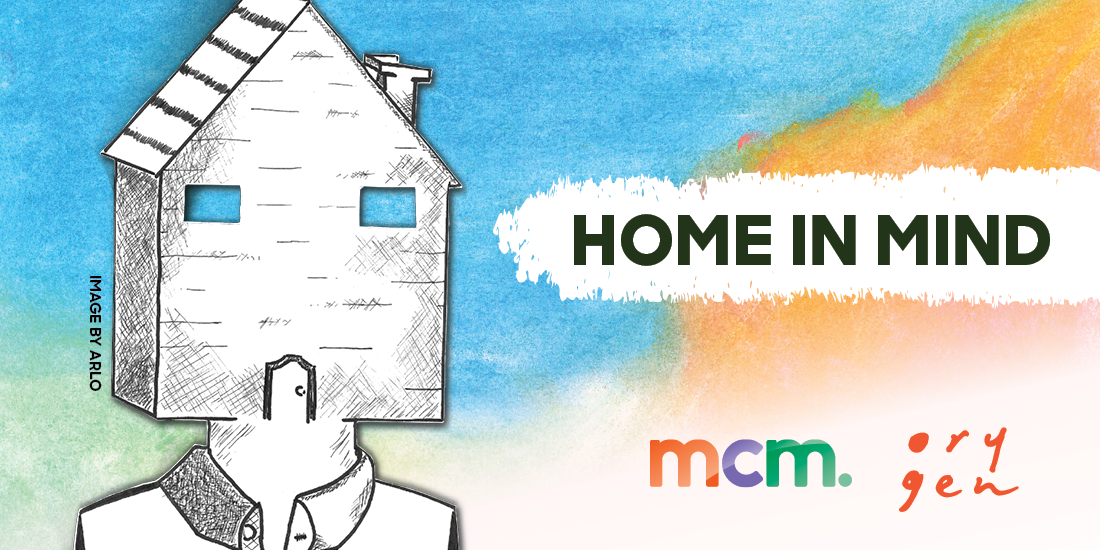
Inaccessible and fragmented systems are leaving young Victorians experiencing homelessness locked out of crucial mental health supports, with dire consequences, a major new report from Orygen and Melbourne City Mission has found.
The report, Home in Mind: improving mental health support for young people experiencing homelessness, found that over half of young people accessing homelessness services reported self-harm, suicidal ideation, or an attempt to take their own life.
The report comes at the end of a major research and policy initiative, including a cross-sector survey, and calls for urgent action, including the immediate implementation of the Royal Commission into Victoria's Mental Health System’s commitment to 500 supported housing places for young people experiencing homelessness.
Home in Mind found young people experiencing homelessness faced significant barriers to accessing mental health care, including rigid clinical catchment areas, a reliance on parental consent, and inadequate service models.
Vivienne Browne, Director of Policy and Engagement at Orygen, said youth homelessness and mental ill-health are closely intertwined and are both impacted by things like family violence, childhood trauma and inadequate social supports.
“The insecurity, isolation and stigma around homelessness can exacerbate mental ill-health, while mental health challenges often create barriers to securing stable housing,” Browne said.
“The cycle is perpetuated by fragmented systems and design of current youth mental health services that present barriers to access, leaving young people struggling to access early intervention and lifesaving care time when they are incredibly vulnerable and stressed.
“Victoria’s current services, while well-intentioned, are not meeting the needs of homeless young people, with many presenting in a state of crisis to emergency departments and being further traumatised by the responses they receive there.”
Vicki Sutton, CEO of Melbourne City Mission, said young people aged 15-24 faced the highest rates of homelessness in Australia, with 11,301 young Victorians presenting alone (not accompanied by a parent, guardian or support person) to Specialist Homelessness Services in 2023-24.
“Almost one in two of these young people reported having visited an emergency department due to mental health concerns, often multiple times.” Sutton said.
“Young people are being failed by a system that does not recognise their unique circumstances - it's hard enough accessing mental health services, but when you don't have a stable home it's often a case of ‘no home, no healthcare’.
“This report provides a roadmap for reform, urging immediate action to break the cycle of homelessness and mental ill-health.”
The report outlines key recommendations to address the current lack of access to appropriate services, including implementing the recommendations of the Royal Commission and system-wide reforms such as reviewing emergency department responses to homeless youth, improving admission guidelines, and piloting youth-centered coordinated care hubs.
Chair Commissioner Treasure Jennings from Victoria’s Mental Health and Wellbeing Commission said the report provided strong evidence of systemic issues making it extremely difficult for young people navigating both homelessness and mental ill-health.
“The report makes it clear that despite a strong reform agenda barriers like rigid eligibility criteria, geographical catchment areas, and insufficient outreach or after-hours services prevent many young people from accessing care they urgently need,” Ms Jennings said.
“The Royal Commission emphasised the need to listen and respond to the voices of lived experience and reports like this, with these deeply personal stories from young people experiencing homelessness and mental ill-health, are fundamental to reform.”
Kristin Simondson, member of the Lived Expertise Advisory Group said, “for too long our mental health and homelessness systems have left the most in need completely unsupported.”
“Young people experiencing homelessness and mental ill-health have been excluded and handballed between these siloed systems until they get lucky, give up, or die waiting.
“We need systems that support the recovery of these brilliant, resilient, intelligent, passionate young people so they can become the change-makers our world truly needs.”
Browne said that despite the challenges, there were actionable steps that could be taken immediately.
“Successful models of care do exist and have been implemented internationally – what we need now is to set up and trial these systems locally,” Browne said.
“Delivering on the Royal Commission's recommendations, as well as better integrating services and offering more flexibility to better meet the needs of young people navigating the complexities of homelessness and mental ill-health, is a vital part of tackling the youth mental health crisis.”